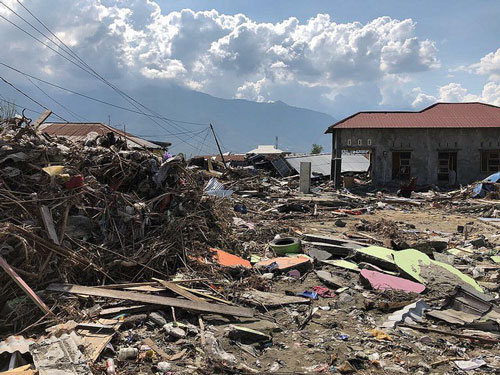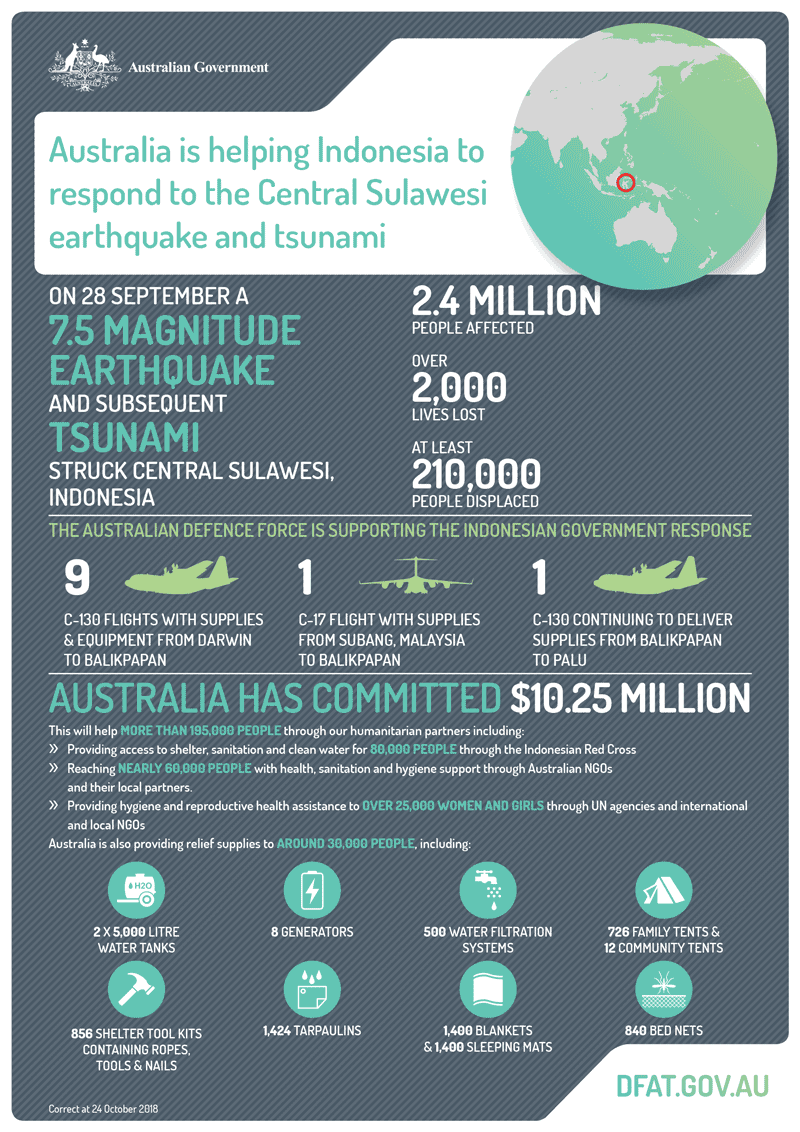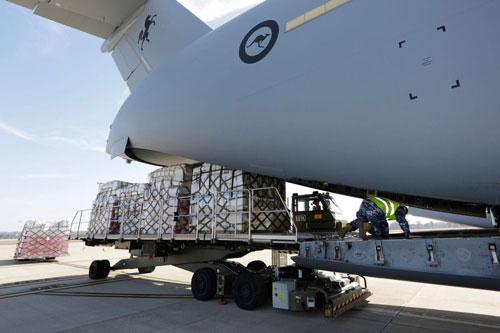Background
On 28 September 2018, a 7.5 magnitude earthquake struck Central Sulawesi, Indonesia, resulting in 1.5 metre tsunami waves that caused widespread damage and destruction to the areas of Palu and Donggala.
On 4 October, Indonesian authorities estimated 2.4 million people were affected. The ASEAN Coordinating Centre for Humanitarian Assistance estimated that some 191,000 people were in need of immediate humanitarian assistance.
As of 22 October, the death toll from the earthquake and tsunami stood at more than 2,000 people, with over 4,600 severely injured and at least 210,000 people displaced from their homes. The earthquake caused widespread damage to homes, buildings and critical infrastructure, including to health services and schools. Affected people faced health risks due to the lack of clean water, food and sanitation.
The Indonesian Government led the humanitarian response.
Factsheet on Australia's response to the Sulawesi earthquake and tsunami
Australian Government assistance
The Australian Government committed $10.25 million to support the Indonesian Government and humanitarian partners to respond to the needs of communities impacted by the earthquake and tsunami. This included:
- $2 million through the Australian Humanitarian Partnership for Australian non-government organisations (NGOs) to work with their Indonesian partners to provide life-saving support to around 60,000 people by meeting immediate water and sanitation needs, providing shelter, protection services and psychosocial support, and through the distribution of essential supplies.
- Providing hygiene and reproductive health assistance to over 25,000 women and girls through UN agencies and international and local NGOs.
- $1 million for the Red Cross to provide around 80,000 people with access to shelter, sanitation and clean water.
- Up to $1,000,000 in Australian Government humanitarian relief supplies and logistics support to provide around 30,000 people with essential items including tarpaulins, tools to build shelter, and items to ensure people had safe water and access to electricity.
The Australia Defence Force (ADF) supported the Indonesian Government in their response efforts, including by delivering humanitarian supplies on ADF aircraft.
Nine Australian Defence Force (ADF) C-130 flights delivered humanitarian supplies and equipment from Darwin to Balikpapan, including tarpaulins, family tents, generators and water purification supplies. An ADF C-17 delivered pre-positioned Australian and ASEAN Humanitarian Assistance on Disaster Management (AHA Centre) supplies from Subang, Malaysia to Balikpapan. An ADF C-130 aircraft also carried humanitarian supplies between Balikpapan and Palu and evacuated people from affected areas.
Media releases
- 6 October: Further Australian support following the Sulawesi earthquake and tsunami
- 4 October: Australian Humanitarian supplies depart for Indonesia
- 3 October: MIKTA Foreign Ministers' Joint Statement on the Recent Earthquake and Tsunami in Indonesia
- 3 October: Sulawesi earthquake and tsunami assistance
- 30 September: Sulawesi earthquake and tsunami
Follow the Foreign Minister @SenatorWong, Australia's Ambassador to Indonesia @DubesAustralia, and @AusHumanitarian on Twitter for more information about Australia's humanitarian response.



